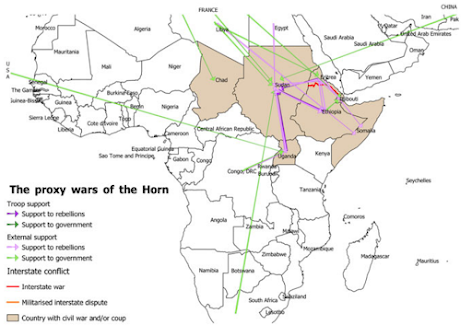6 - Proxy politics, Part 1: An Introduction

Hi everyone and welcome back to my blog! This post will mark the beginning of a new focus: ‘proxy politics’ in the Nile basin. In the previous set of entries, I covered how the Grand Ethiopian Renaissance Dam has impacted the geopolitics of the Nile basin. The talks surrounding the project are currently facing a political deadlock. Therefore, the three countries involved (Egypt, Sudan, and Ethiopia) are looking for other options in order to break this stalemate and gain some negotiating power ( Cascao et al. 2019 ). This is where ‘proxy politics’ comes in. Proxy politics is a situation where an external country becomes involved in the internal politics of another nation in order to serve their own ambitions ( Cascao et al. 2019 ). This often entails similar interests between the proxy and the patron. However, one can expect asymmetrical relationships between them as the latter is usually involved from a distance while all the risks fall on the former ( Cascao et al. 2019 ). Th
